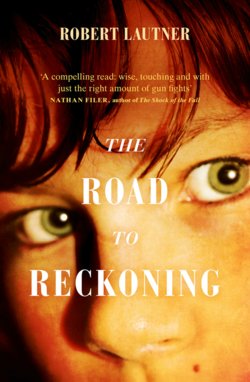Читать книгу The Road to Reckoning - Robert Lautner, Robert Lautner - Страница 10
THREE
ОглавлениеOur gelding, Jude Brown, named on account of his brown eyes and not his fawn-and-roan coat, was a hay horse. This made him slow to the road and, once he got a flavor of the grain we had brought with us, became slower still and fair plodded along as if he carried a whole town behind.
Towns were not those so incorporated that we know now. Boroughs for the most. Some of their names have changed, either through disease or shame, and only their counties remain as their forebears.
We were to travel through Pennsylvania using the lakes, rivers, and canals as our guide, which are the most populous routes, aided with only a compass. This was not such a daunting prospect as it sounds. The method was to visit one settlement and, if successful or not, get directions to the next. A man who does not want to buy your goods is most willing to direct you well to elsewhere. These directions were west anyhow and the road straight.
We camped for the most to save money and I woke almost every day smelling of smoke but glad for it, for April is not a bad month.
Sleeping on the Brewster for fear of snakes and such, I even found comfort in my father’s snoring. That was the first time I had ever slept with anybody, having no siblings, and I still do not know why people complain so. I could barely sleep for grinning.
We had flint, striker, and char cloth for the fire and it was my role to gather the wood and stones, which takes longer than you think. The small animals have no fear of you but rather chatter and chide with the birds that you are disturbing their house. We had some anthracite to fire the oven with kindling added and we made our tea first, with water from the rivers, which tasted of iron. We poured out and kept the tea in a kettle and fetched more water for the sofkee and put in the jerky to soften so it became like bacon. With the corn bread on the side, that was our dinner, and we kept to the hours of between noon and three if we were able and ate supper when we felt we had done enough. Supper would be the cheese and crackers and any sofkee meal we had left. At breakfast we would mash the dodgers with water and the scrapings of the sofkee and rewarm our tea, which would make me giddy with its strength overnight.
I did not complain, but I missed eggs and pork and I did not think it would have weighed Jude Brown too much to have carried eggs at least. I think my father had expected more farms or the towns to be larger but he never said a word on this.
Five days in, over the Delaware by ferry, and we had gained a hundred miles and made Berwick before noon. The place was busy with engineers and carpenters, the town having lost its bridge two years before due to an ice flood and keen to have it rebuilt. This progress of the bridge across the Susquehanna had brought great trade, although the men worked for half of what they would have done last year and someone with a big hat and cigar knew that and profited.
A poor businessman will pay his worker as much as he can afford. A rich one, in times disadvantageous, as little as he has to. That is the world. Still is. Your vote will not change it. You know that now. I work my land for somebody else and get on with it beside you. Maybe I am writing this to be a boy again. Maybe you are reading it for the same. A time before writs and accounts. I say a bill is not a bill until they come tapping at your window.
This place, Berwick, at least had hotels, the cheapest being eighty coronet cents and the greatest two dollars. We stayed at the cheapest, which gave us a hammock, but breakfasted farther up the street where we could get ham and eggs for one shilling, our New York term for the Spanish real, but we settled wiser on fried eggs and bread for nine red cents, thinking less of Gould’s saloon, where our hammocks were, who would charge you an extra three cents for toast. Even I knew that was costly. Jude Brown ate at the hostler and probably did the better for it.
We had made good sales so far. My father sold the Patersons for ten coin dollars, fifteen if it was sold with its kit, which included a spare cylinder and combination tool. That breakfast we had paper orders for one hundred and twenty dollars and even I knew that was not bad. It was with high hearts that we left Berwick, and even Jude Brown could sense our lack of troubles for he fair skipped along. But the towns got smaller, the road meaner, and it is along that a bit that I would meet Henry Stands. We still had the twelve Patersons, the wooden one occasionally my plaything, and I pointed it and shot at ghosts of Indians along the road.
It was the last time I played until I met my own children.
